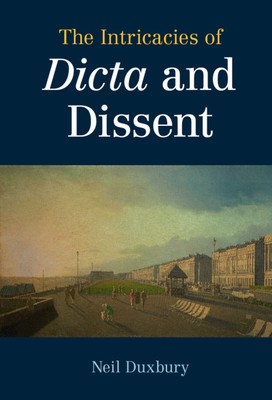
- We will send in 10–14 business days.
- Author: Neil Duxbury
- Publisher: Cambridge University Press
- ISBN-10: 110884149X
- ISBN-13: 9781108841498
- Format: 15.2 x 22.9 x 1.8 cm, hardcover
- Language: English
- SAVE -10% with code: EXTRA
Reviews
Description
Common-law judgments tend to be more than merely judgments, for judges often make pronouncements that they need not have made had they kept strictly to the task in hand. Why do they do this? The Intricacies of Dicta and Dissent examines two such types of pronouncement, obiter dicta and dissenting opinions, primarily as aspects of English case law. Neil Duxbury shows that both of these phenomena have complex histories, have been put to a variety of uses, and are not amenable to being straightforwardly categorized as secondary sources of law. This innovative and unusual study casts new light on - and will prompt lawyers to pose fresh questions about - the common law tradition and the nature of judicial decision-making.
EXTRA 10 % discount with code: EXTRA
The promotion ends in 18d.07:58:12
The discount code is valid when purchasing from 10 €. Discounts do not stack.
- Author: Neil Duxbury
- Publisher: Cambridge University Press
- ISBN-10: 110884149X
- ISBN-13: 9781108841498
- Format: 15.2 x 22.9 x 1.8 cm, hardcover
- Language: English English
Common-law judgments tend to be more than merely judgments, for judges often make pronouncements that they need not have made had they kept strictly to the task in hand. Why do they do this? The Intricacies of Dicta and Dissent examines two such types of pronouncement, obiter dicta and dissenting opinions, primarily as aspects of English case law. Neil Duxbury shows that both of these phenomena have complex histories, have been put to a variety of uses, and are not amenable to being straightforwardly categorized as secondary sources of law. This innovative and unusual study casts new light on - and will prompt lawyers to pose fresh questions about - the common law tradition and the nature of judicial decision-making.


Reviews